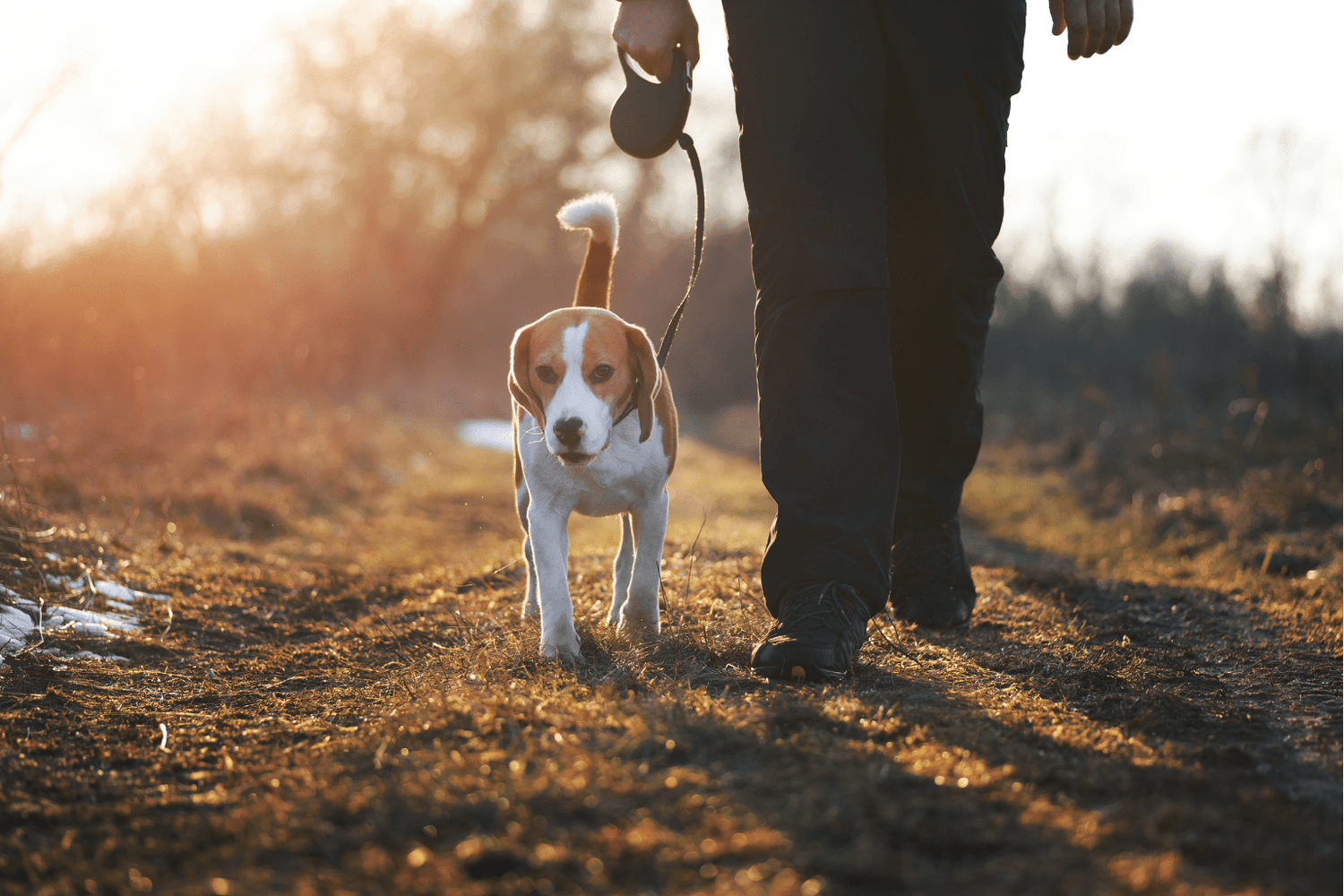Key Takeaways
- A consistent weekly routine provides a foundation for your dog's overall well-being.
- Dogs benefit from predictable patterns that help reduce anxiety.
- Effective dog care includes physical maintenance, mental stimulation, and preventive health measures.
- Maintaining a routine goes beyond feeding to support long-term health.
Table of Contents
- What is a "Dog Weekly"? Nailing Down the Routine Your Dog Deserves
- Designing Your Dog's Weekly Wellness Schedule – Made Simple
- Weekly Wellness Checks Every Dog Parent Should Know
- Grooming Routine – Beyond Bath Day
- Feeding and Hydration – Building Blocks for a Balanced Week
- Exercise, Play & Enrichment – Weekly Musts for Happy Dogs
- Homeopathic & Natural Weekly Support – Gentle Ways to Bolster Your Dog's Routine
- Dog Weekly Routines for Every Age & Need – Puppies, Adults & Seniors
- Keeping Track – Tools, Tips & Apps for Your Dog's Weekly Care
- Troubleshooting – When Weekly Routines Go Off Track
- Real Stories, Real Relief – Success from the BestLife4Pets Community
- Want a Happier "Dog Weekly"? Join Our Natural Care Community
Dog Weekly: Natural Care Guide for Happier Pets
What is a "Dog Weekly"? Nailing Down the Routine Your Dog Deserves
Think of your dog weekly as the foundation for everything good in your pet's life. Just like humans thrive on routine, dogs crave predictable patterns that reduce anxiety and support long-term health. This isn't just about remembering to fill the food bowl, it's a holistic approach covering physical care, mental stimulation, and preventive wellness.
Your weekly essentials include daily exercise and play, regular grooming touch-ups, brief training sessions, and those crucial nose-to-tail wellness checks that catch small problems before they become expensive vet visits. Dogs who follow consistent weekly routines show better behavior, less separation anxiety, and stronger bonds with their families.
For dogs that experience anxiety or stress during changes in their routine, consider incorporating Pet Relax Dog Calming Anxiety Relief as part of your weekly care. If your pup struggles with mobility or joint discomfort, our WALK-EASY® Hip & Joint Pain Relief can help support their active lifestyle and comfort.
| Activity | Frequency | Benefits |
|---|---|---|
| Exercise & Play | Daily, 15-60 min | Physical fitness, mental stimulation |
| Grooming | 2-3 times weekly | Skin health, early problem detection |
| Wellness Checks | Once weekly | Preventive care, bonding time |
| Training | 3-4 short sessions | Mental enrichment, behavior improvement |
Designing Your Dog's Weekly Wellness Schedule – Made Simple

Creating your dog weekly schedule starts with understanding your pup's unique needs. A young Border Collie requires vastly different care than a senior Pug, and busy pet parents need realistic routines that actually stick. The key is matching your dog's energy level, age, and breed characteristics to a sustainable weekly pattern.
Start with non-negotiable daily minimums: 15-30 minutes of exercise, fresh water, quality meals, and brief interaction. Then layer in weekly essentials like grooming sessions (2-3 times for most breeds), training practice (5-10 minute sessions work perfectly), and your weekly wellness check. High-energy breeds need additional mental enrichment, puzzle toys, sniff games, or agility practice.
For busy families, batch similar tasks together. Combine your weekly wellness check with cuddle time, or practice training commands during regular walks. Use phone alarms or pet care apps to build consistency without overwhelming your schedule. The goal is creating a rhythm that feels natural for both you and your dog.
Weekly Wellness Checks Every Dog Parent Should Know
Your weekly wellness check is like a gentle health audit that takes just five minutes but can save you hundreds in emergency vet bills. Early detection of skin issues, dental problems, or joint stiffness means addressing concerns while they're still manageable with natural support.
Start at your dog's head and work toward the tail. Check gums for healthy pink color (not red or pale), eyes for clarity (no discharge or cloudiness), and ears for any unusual smell or dark wax buildup. Run your hands along their coat, feeling for lumps, bumps, or areas of sensitivity. Examine paws for cuts, cracked pads, or overgrown nails that click on hard floors.
Watch your dog's movement during this check, any limping, stiffness getting up, or reluctance to jump can signal joint discomfort that responds beautifully to gentle, natural support. Keep a simple log of what you find each week. Changes in appetite, energy, or bathroom habits often show up in patterns when you track them consistently.
If you notice redness in your dog's eyes or other unusual symptoms, you may find this resource on dog red eyes helpful for understanding potential causes and next steps.
Grooming Routine – Beyond Bath Day
Weekly grooming goes far beyond the occasional bath. Regular brushing (2-5 times weekly for long-haired breeds, 1-2 times for short-haired dogs) prevents matting, distributes natural oils, and gives you hands-on time to spot skin changes early. Choose brushes designed for your dog's coat type, slicker brushes for thick coats, bristle brushes for smooth coats.
Most dogs need baths every 4-6 weeks, not weekly, unless they're particularly active outdoors or have skin conditions. Over-bathing strips natural protective oils and can cause irritation. When you do bathe, use gentle, soap-free formulations that won't disrupt your dog's skin barrier.
Weekly ear cleaning with veterinarian-approved solutions prevents infections, especially in floppy-eared breeds. Trim nails every 2-4 weeks, if you hear clicking on hard surfaces, they're too long. For anxious dogs who resist grooming, Pet Relax calming support helps pets relax naturally during self-care routines, making the experience positive for everyone involved.
Feeding and Hydration – Building Blocks for a Balanced Week

Consistent meal timing anchors your dog weekly routine and supports healthy digestion. Puppies need 3-4 smaller meals daily, adult dogs thrive on twice-daily feeding, and seniors may benefit from smaller, more frequent meals to ease digestion. Stick to the same feeding times each day, dogs' internal clocks are remarkably precise.
Monitor water intake as part of your weekly wellness routine. Most dogs need about an ounce of water per pound of body weight daily, but this varies with activity level, weather, and diet. Sudden increases in thirst intake can signal health issues worth noting in your weekly wellness log.
Consider creating a simple weekly feeding journal to track patterns. Note meal times, portion sizes, treats given, and your dog's enthusiasm for food. This becomes invaluable data if health concerns arise, and many veterinarians appreciate having this information during check-ups.
Natural feeding transitions work best when introduced gradually over 7-10 days. If you're considering dietary changes or adding gentle supplements to support digestion, our community has found success with Dog Allergy Relief & Immune Support to ease the transition while maintaining weekly routine consistency.
Exercise, Play & Enrichment – Weekly Musts for Happy Dogs
A well-rounded dog weekly exercise plan varies dramatically by breed, age, and individual energy levels. Large breeds like German Shepherds typically need 60-90 minutes of activity daily, while smaller dogs may thrive with 30-45 minutes. Senior dogs benefit from gentler, more frequent sessions rather than intense bursts.
Weekly enrichment activities should engage both body and mind. Rotate between physical exercise (walks, fetch, swimming), mental stimulation (puzzle toys, sniffing games, hide-and-seek), and training sessions. Even 5-10 minutes of basic commands twice weekly strengthens your bond while keeping minds sharp.
Don't overlook the power of variety in your weekly routine. Monday might feature a neighborhood walk, Wednesday could include backyard agility with household items, and Friday might be puzzle toy day. This prevents boredom and behavioral issues that stem from under-stimulation.
For dogs managing joint discomfort or recovering from illness, gentle indoor activities become essential. Our community member Sarah shared how her senior Lab, Bailey, found renewed enthusiasm for weekly play sessions after incorporating our WALK-EASY® Advanced Hip & Joint Pain Relief alongside modified exercise routines that honored his aging body. If you need more ideas for keeping your dog active indoors, check out these tips on how to exercise dogs indoors.
Homeopathic & Natural Weekly Support – Gentle Ways to Bolster Your Dog's Routine
Integrating natural homeopathic support into your dog weekly routine offers gentle ways to maintain balance without harsh chemicals or unwanted side effects. Unlike conventional medications that can disrupt your pet's system, homeopathic remedies work with your dog's natural healing processes to support overall wellness.
Consider how weekly natural support fits different scenarios: calming pellets before thunderstorms or vet visits, joint comfort formulas after active hiking weekends, or digestive support during dietary transitions. Our pellet-based remedies integrate seamlessly into weekly routines, simply add to food or offer directly.
| Support Area | When to Use | BestLife4Pets Advantage |
|---|---|---|
| Joint Comfort | After exercise, aging dogs | Gentle pellets, no stomach upset |
| Calming Support | Storms, travel, separation | Fast-acting, no drowsiness |
| Digestive Wellness | Diet changes, sensitive stomachs | Natural ingredients, easy dosing |
| Senior Vitality | Daily support for aging pets | Comprehensive formula, proven results |
Pet parent testimonials consistently highlight how natural weekly support transformed their routines. "Teddy went from dreading our weekly hikes to leading the charge up the trail," shared one community member after incorporating our joint comfort formula. Remember: these remedies support your pet's natural healing and are not a substitute for professional veterinary advice.
Dog Weekly Routines for Every Age & Need – Puppies, Adults & Seniors

Puppy weekly routines focus heavily on socialization, house training, and short bursts of activity. Young dogs need 3-4 meals daily, frequent potty breaks, and multiple brief play sessions rather than long walks that can damage developing joints. Weekly puppy socialization should include new sights, sounds, and gentle interactions.
Adult dog weekly schedules hit peak activity levels with longer walks, advanced training challenges, and consistent meal timing. This life stage allows for hiking adventures, agility training, and more complex mental enrichment activities that would overwhelm puppies or exhaust seniors.
Senior dog weekly care shifts toward comfort and gentle maintenance. Older dogs benefit from shorter, more frequent walks, orthopedic bedding checks, and increased health monitoring. Weekly joint assessments become crucial, and many senior pet parents find success with our Dog Skin & Coat + Fur Regrowth to help maintain mobility and enthusiasm.
Age-Specific Weekly Priorities:
Puppies: Socialization, house training, gentle play
Adults: Peak exercise, advanced training, routine maintenance
Seniors: Comfort care, gentle activity, increased health monitoring
Keeping Track – Tools, Tips & Apps for Your Dog's Weekly Care
Tracking your dog weekly routine helps identify patterns, catch health changes early, and ensure nothing important gets forgotten. Simple paper planners work beautifully for visual learners, while smartphone apps offer reminder alerts and easy sharing with family members or pet sitters.
Popular tracking methods include weekly photo documentation, dedicated pet care journals, and digital apps like "Pet First Aid" or "11pets" that sync across devices. The key is choosing a system you'll actually use consistently.
Pro tip: Set up your tracking system before starting your dog weekly routine. This prevents the overwhelm of trying to remember everything while building new habits.
Troubleshooting – When Weekly Routines Go Off Track
Quick Fix: Missing one or two weekly activities won't derail your dog's health. Focus on consistency over perfection.
When your dog resists new routines, start smaller. If weekly nail trims cause stress, begin with just touching paws during cuddle time. Reward cooperation with treats and praise, gradually building up to the full routine.
Missed a weekly bath or grooming session? Most dogs can easily go an extra few days without issue. However, if you notice increased scratching or odor, prioritize a gentle cleanup over waiting for the "scheduled" day.
Special circumstances require flexibility. Senior dogs recovering from surgery, newly rescued pets with trauma histories, or dogs with chronic conditions may need modified routines. Our gentle homeopathic support helps many pets feel more comfortable during routine adjustments, supporting their body's natural ability to adapt.
Emergency warning signs that warrant immediate veterinary attention include sudden appetite changes lasting more than 24 hours, persistent vomiting, obvious pain or lameness, or dramatic behavioral shifts. Your weekly wellness checks help you spot these changes early. For more on routine health care, see this comprehensive guide to routine health care of dogs.
Real Stories, Real Relief – Success from the BestLife4Pets Community

Shadow's Story: This 8-year-old Golden Retriever struggled with stiff joints after weekend hikes. His family started a consistent dog weekly routine including gentle joint checks and our natural joint support pellets. Within three weeks, Shadow was bounding up stairs again and enjoying longer trail adventures.
Luna's Transformation: A rescue dog with grooming anxiety, Luna would shake and hide during weekly care sessions. Her new family combined patient routine-building with our calming support formula. Now Luna actually seeks out her weekly brush sessions, having learned they mean special bonding time.
What's your story? Our community loves hearing how weekly routines and natural support have helped families strengthen their bonds with their dogs. Share your wins and challenges – we're all learning together. If you're concerned about your dog's dental health, you may also want to learn can dogs get gum disease and how to prevent it as part of your weekly routine.
Want a Happier "Dog Weekly"? Join Our Natural Care Community
Feel confident caring for your pet, naturally, every week. When you combine consistent weekly routines with gentle, natural support, you're giving your dog the foundation for a longer, happier life. Our community of caring pet parents proves that small weekly actions create big health wins over time.
Ready to enhance your dog weekly routine? Explore our gentle homeopathic remedies designed specifically for the real challenges pet families face – from joint comfort to calming support to senior vitality. Every formula supports your dog's natural healing abilities without harsh chemicals or unwanted side effects. For more tips on caring for your dog, visit the American Veterinary Medical Association's dog care resource.
Remember: This guidance supports but never replaces professional veterinary advice. Always consult your vet for health concerns.
Frequently Asked Questions
What are the essential components of a consistent weekly routine for my dog's overall well-being?
A solid weekly routine includes regular exercise and play, grooming sessions, wellness checks, and mental enrichment. These elements work together to support your dog's physical health, reduce anxiety, and keep their mind sharp, creating a balanced and happy pet.
How can I tailor a weekly wellness schedule to fit my dog's age, breed, and energy level?
Adjust the intensity and duration of activities based on your dog's unique needs, for example, puppies need shorter, frequent playtimes, while seniors benefit from gentle exercise and extra joint support. Breed traits and energy levels guide how much stimulation and rest your dog requires each week.
What are some effective ways to incorporate mental enrichment and training into my dog's weekly care?
Short, consistent training sessions spread throughout the week help keep your dog's mind engaged and improve behavior. Puzzle toys, scent games, and new commands offer fun challenges that stimulate their brain and strengthen your bond.
How do weekly wellness checks help in preventing health issues and strengthening the bond with my dog?
Weekly wellness checks let you spot small changes early, like skin irritations or unusual lumps, before they become bigger problems. These moments also build trust and connection, showing your dog you’re attentive to their needs and care deeply about their well-being.



